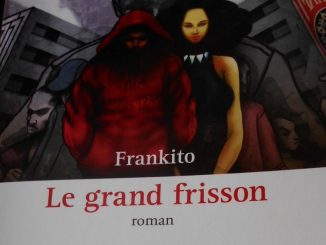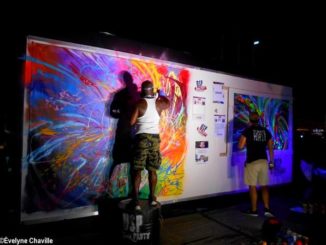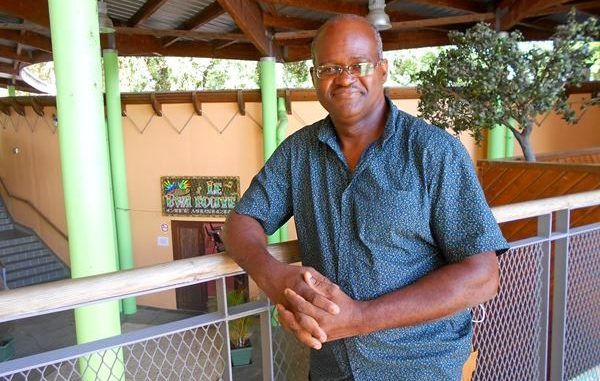
Former musician, producer and designer of the Festival Creole Blues in Marie-Galante (renamed Festival Terre de Blues) with Pierre-Édouard Décimus, Eddy Compper has been the director of performing arts, artistic education and training at the Cap Excellence agglomeration community (that includes Pointe-à-Pitre, Les Abymes et Baie-Mahault) for five years, as well as the director of the Sonis Cultural Centre. He told us about this cultural structure (created in 2002) which reopened its doors on this territory at the time of Covid-19 after lockdown (from March 17 to May 10, 2020).
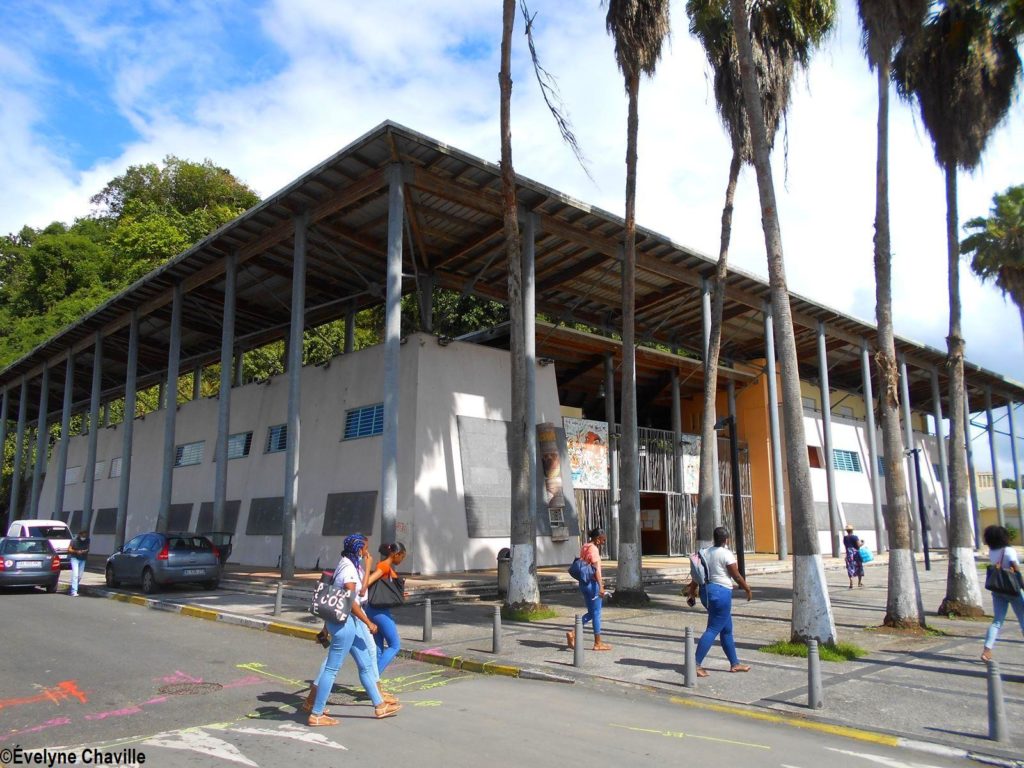
Kariculture.net : What is the history, the genesis of the foundation of the Sonis Cultural Centre?
Eddy Compper : Sonis was originally a facility thought up by a musician, a pianist, Christian Amour, who had started with other people at the Assainissement district, right next to Sonis, the Mavounzy School which existed for 7 or 8 years and which taught music to adults and children. From there, he had the idea of creating a space, together with the municipality of Les Abymes, which could accommodate both a small school and a broadcasting space that was a music-café.
There was a housing renewal project in Sonis, Lacroix and Boissard, which were slums, and in this project, there was the idea of building cultural facilities : cultural centre in Sonis, Roger Toumson library and another small cultural centre in Lacroix. The idea was to set up cultural facilities in these spaces to enable the population not only to live here but also to have a social and cultural life.
The construction of this facility started, the first director was Christian Amour, then Gérard Poumaroux. In the meantime, the Centre des Arts et de la Culture was starting to age and needed to be renovated, so the Sonis Cultural Centre took over for the “show” part and hosted performances, creations and the “school” part. When I arrived 5 years ago, I emphasized the artistic education and training part since I was appointed Director of Performing Arts, Artistic Education and Training at the Cap Excellence Urban Community and Director of the Sonis Cultural Centre. I really implemented an education and training programme based on a reference framework for artistic establishments and trainings. We went from animation and initiation of practices to a real training and education plan.
Today, Sonis aspires to be an establishment classified by the Ministry of Culture and that can provide training leading to a diploma, such as a conservatory or an accredited school, that is the objective, the next step.
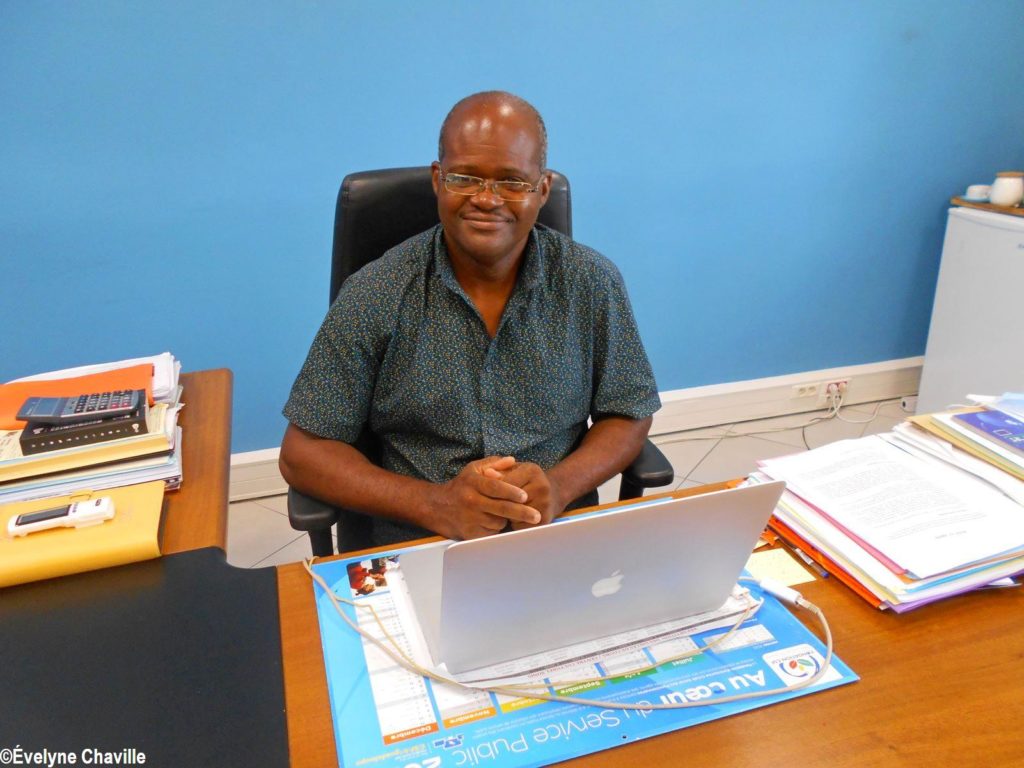
Kariculture.net : How many students are enrolled in the Centre?
E. C. : We are generally close to 700 students. We start from the musical awakening from the age of 6 and we go up to the amateur practices and the amateur practices made by seniors up to the age of 80. Of course with two very distinct courses. First of all, artistic education and training for students who want to follow in the footsteps of academic training and, since its creation, we have been partners of the TMD which now became the S2TMD (Technical sciences of theatre, music and dance) – the artistic baccalaureate – with the Lycée Carnot ; there are also students who aspire to join artistic schools or streams. Then there is amateur practice, that is to say the lambda who comes because he wants to learn an instrument for personal reasons, he will not be a professional but he will be a good amateur.
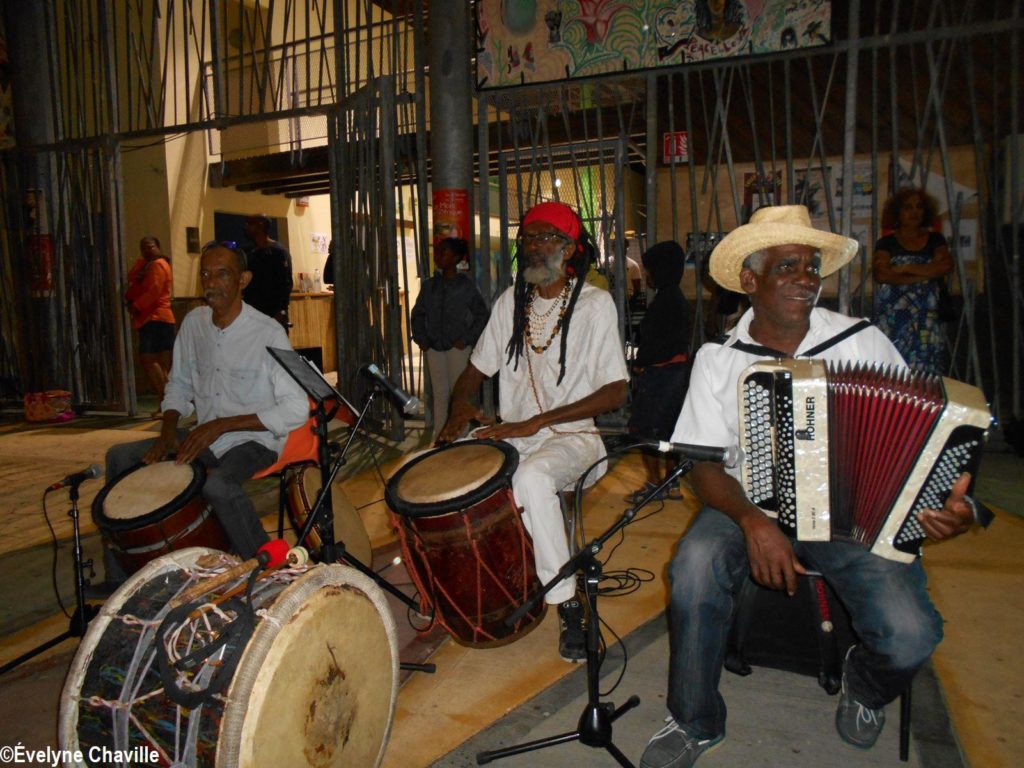
Kariculture.net : What about your teachers?
E. C. : We have a teaching staff of about 35 teachers, the majority of whom – 85% – are state-qualified. We have the 3 disciplines: dance, music and theatre, we will introduce the MAO which is computer-assisted music. In music, we have aesthetics such as the traditional music of our region, gwoka, classical, jazz and contemporary music; in dance, we have traditional dance, jazz, hip hop, street dance, classical dance ; in theatre, we have the two paths, the two counterparts which are children’s theatre and adult theatre.
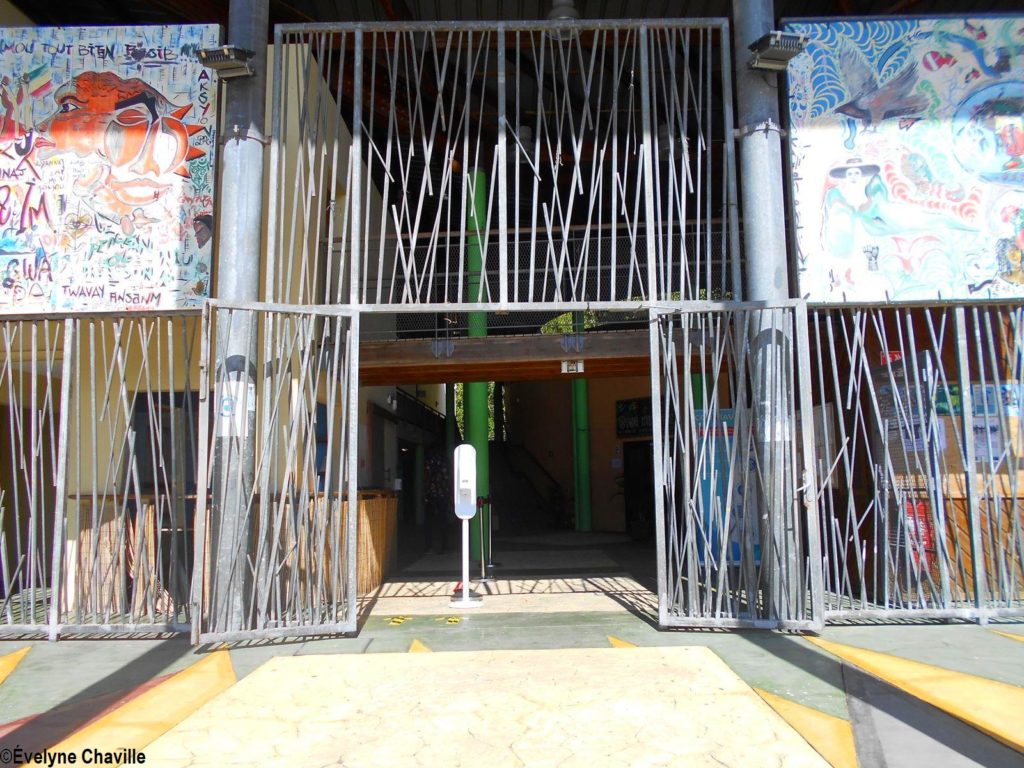
Kariculture.net : what are your plans for plastic arts?
E. C. : For the moment, for reasons of really dedicated places, we are doing workshops and master classes. We have two rooms to renovate which will be dedicated to computer-assisted music and plastic arts.
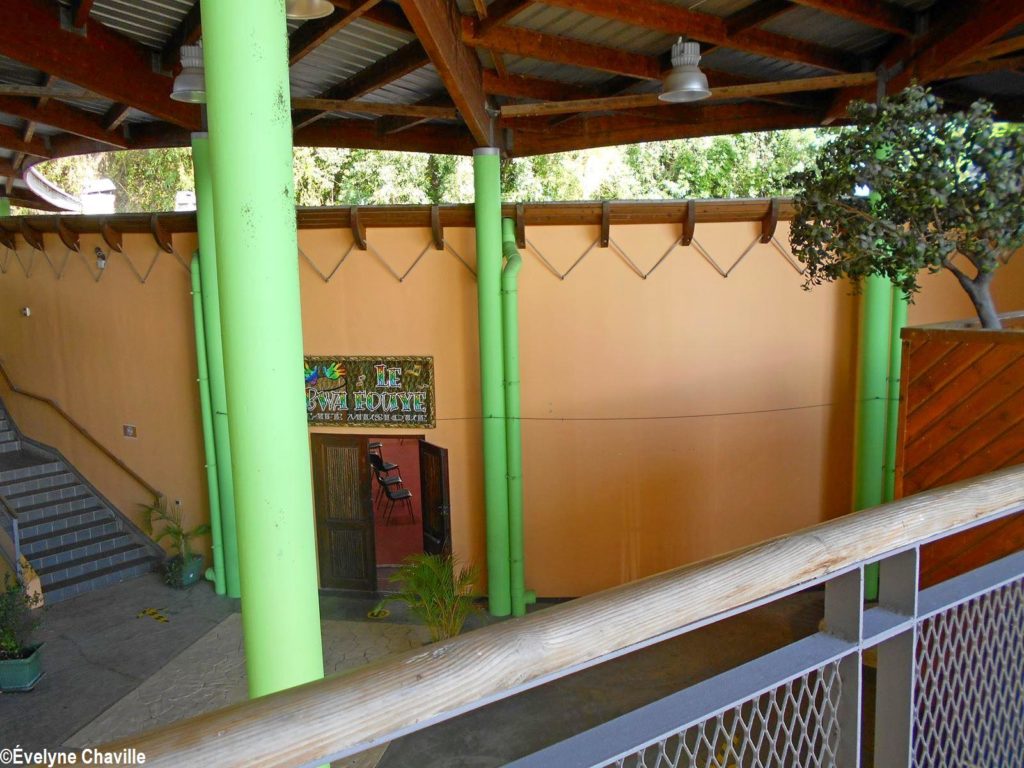
Kariculture.net: What is the pricing policy of the Sonis Cultural Centre?
E. C. : We are in a priority area so Sonis is a public establishment with a vocation of cultural democratization to make access to culture easier for the surrounding population and the Guadeloupean population.
To do this, we have a policy implemented and led by the president of Cap Excellence, Éric Jalton, and the president of the operating council, Alexandrine Mouëza, who in this democratization process goes through two pillars : access facilitated by price for shows and education (our prices are more than competitive with solidarity and social tariffs) and access to broadcasting at a very moderate rate, Sonis’ shows, in general, do not exceed 15 euros with a very clear distinction for the inhabitants of the conurbation who can benefit from a preferential rate and the other inhabitants outside the conurbation.
It is a pricing policy that aims to facilitate access for everyone and, on the other side, with all the associations in the urban area and the district, to allow people who have difficulty in entering a centre or cultural space to do so. We do this a lot with children : the child who is used to attending a place, inevitably comes with Mom and Dad, and the parents become the future members of Sonis.
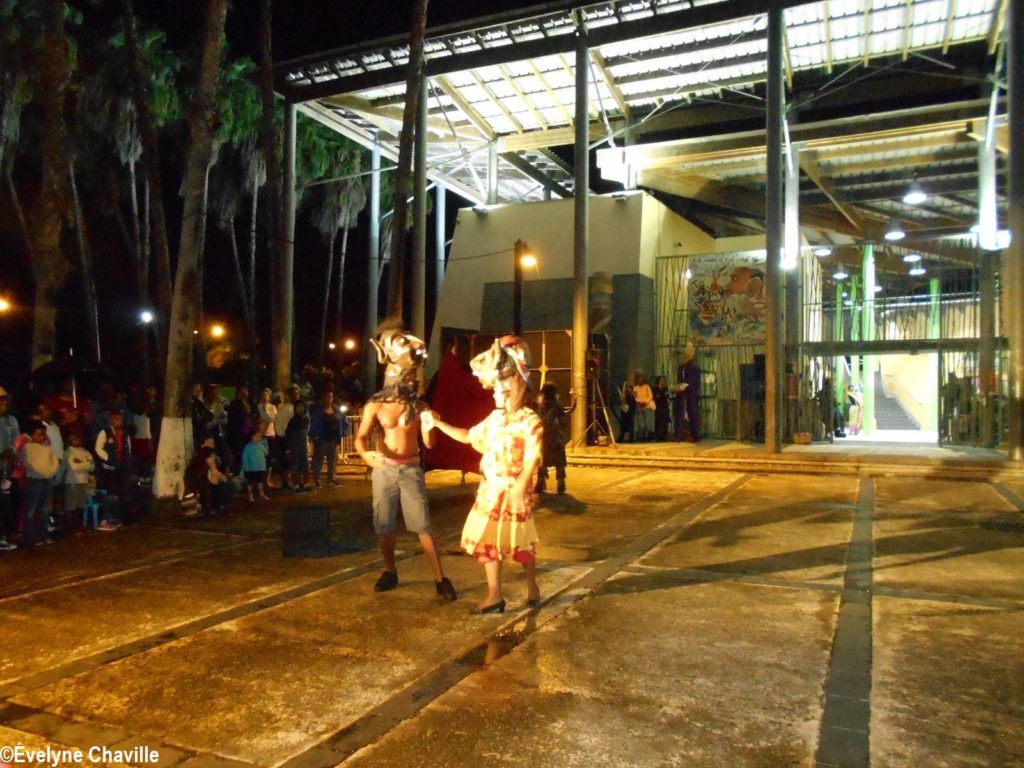
Kariculture.net : Do young people who studied at Sonis and who started a cultural career here or elsewhere come to visit you?
E. C. : Of course. Through the TMD, all the students do their practical part here. I recall that the Lycée Carnot was ranked “best high school in France” for arts education, and all the students who passed their baccalaureate, who went to Canada as well as to France – there is even a student, Luan Pommier, who will go to Berklee – systematically come back to see us when they are passing through the town, to meet the students and to give this ambition, their experience. Two years ago, six students fully trained at Sonis in lyrical singing graduated from the Conservatoire international de Paris in undergrad and graduate
groups with “good”, “very good” honours and even medals. Two years ago, we also won prizes in dance. These are adult students who, in their professional life, often come back to Sonis to encourage. Sonis is this artistic and cultural ferment in education and production.
We accompany many artists and many artists who went on the Sonis stage come back. Sonis is a meeting place. When they want to meet someone in the city, they tell him to come to Sonis. It’s a place of passage, a place where everyone stops.
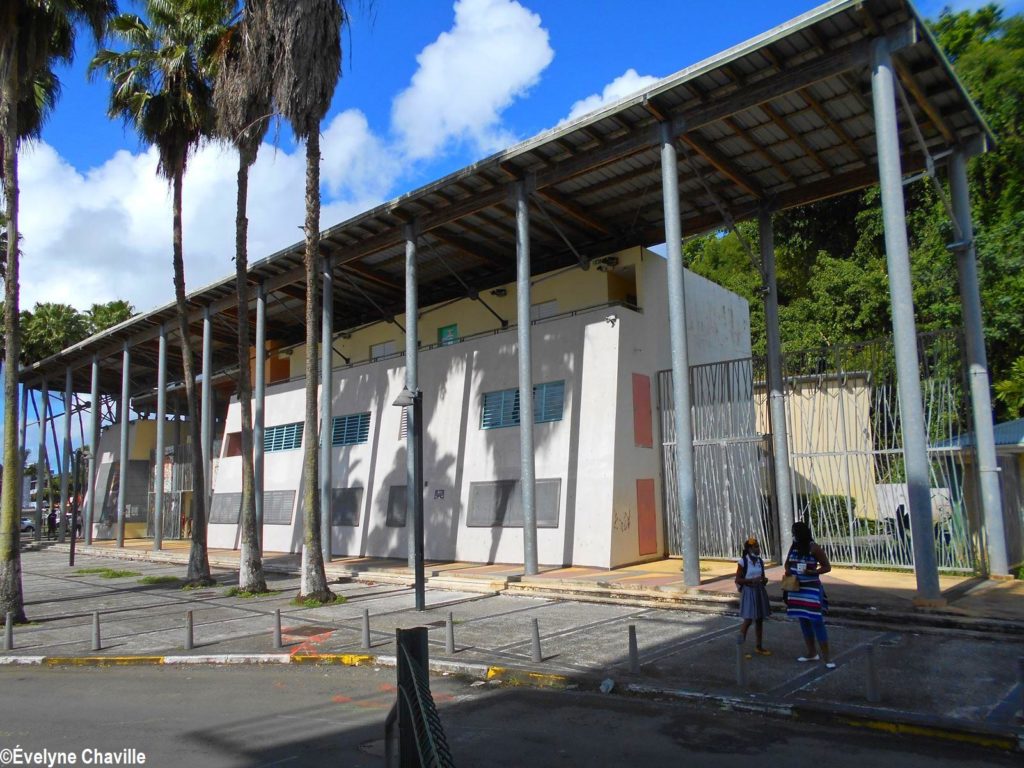
Kariculture.net : With this Covid-19 epidemic, how is the Sonis Cultural Centre working now? What protocol was put in place to teach the courses?
E. C. : After lockdown, we opened for artistic education and training with a strict health protocol set up by the National Education for the courses and a protocol set up by the Ministry of Culture for the places of artistic education and training that allows us to respect the barrier gestures, with gel at the entrance, the obligatory wearing of masks, the direction of traffic. Training and projection disciplines (singing, wind instruments) are taught in spaces that allow to have the 4 metres of distancing. We adapted our teaching according to the disciplines in places, moreover the stage space now became a training space and we privileged a lot individual teaching. All about dance and theatre are teachings that do not exceed 6 students in the spaces with a protocol, that is to say that before entering, there is disinfection and ventilation, after the class, we do the same thing, and the student keeps the mask for his practice if it is a discipline that does not require taking it off.
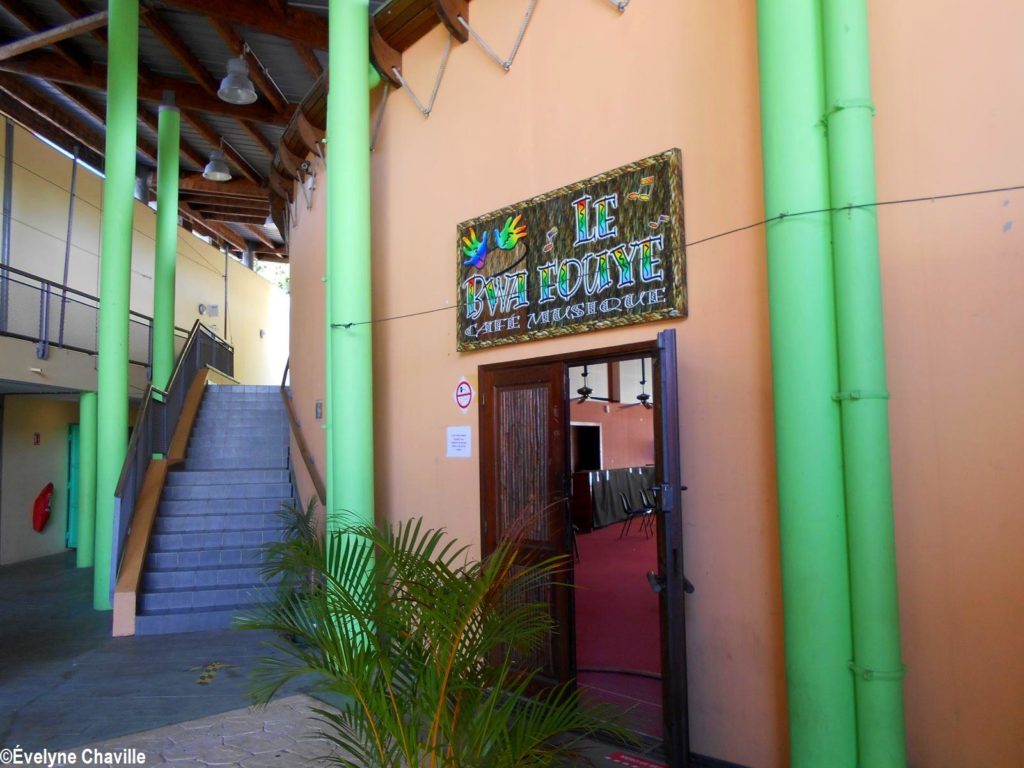
Kariculture.net : Are the students there? Do you have the same number of students as before lockdown?
E. C. : In 2019, the Sonis Cultural Centre had about 700 students. Since the health crisis, we have already at 580 students, which means that all students returned. The 140 that could not be re-enrolled were group disciplines (folk dance, traditional dance) or contact disciplines (quadrille dance etc.). At the re-opening, there was a communication for parents, many came to see how the safety part was organized in Sonis; what was great these parents who came as scouts called the others (…) Sonis recovered 80% of its students.
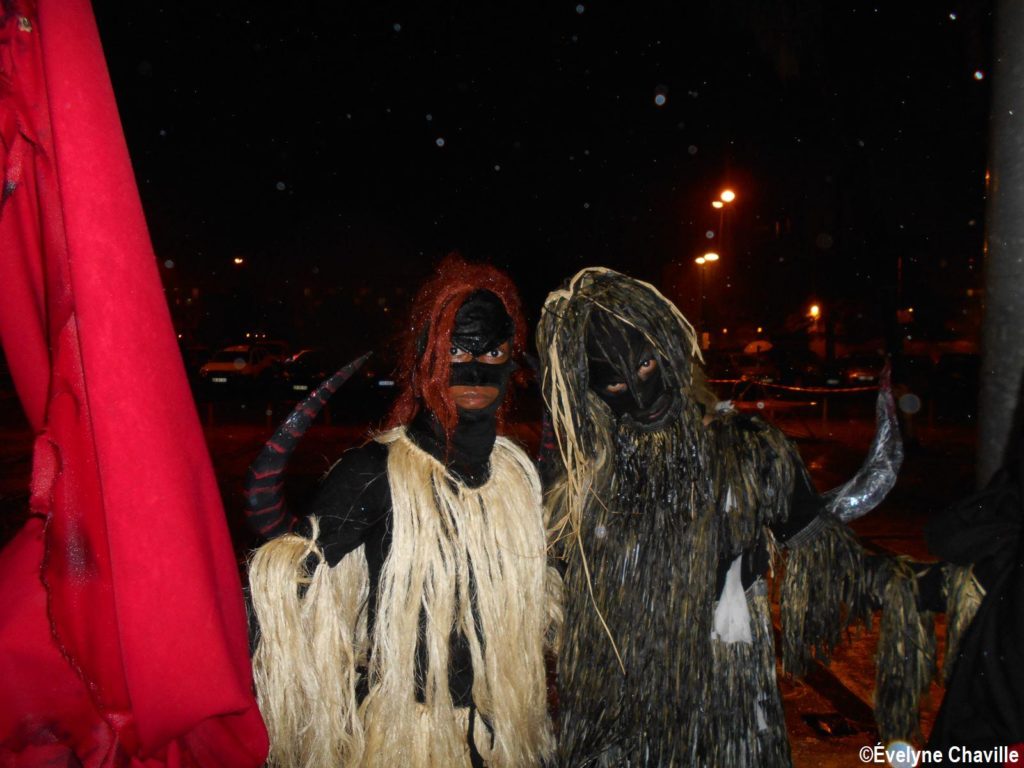
Kariculture.net : Production in Sonis is facing a major problem because of this coronavirus. The consequence is that everything is stopped and there are no more shows. How do you deal with this situation?
E. C. : In the protocol currently in force and established by the State, only cinema and shows can be broadcast. We chose not to follow the show for 2 reasons: the hall was reserved for courses and it is also used as a meeting room. We gave priority to education and training and when Covid will be a little more “balanced”, we will be able to restart the show. Having said that, from time to time we can do creative residencies so we keep the artistic activity even reduced to allow our occasional workers in the entertainment arts to work, to allow artists to have a minimum of activity.
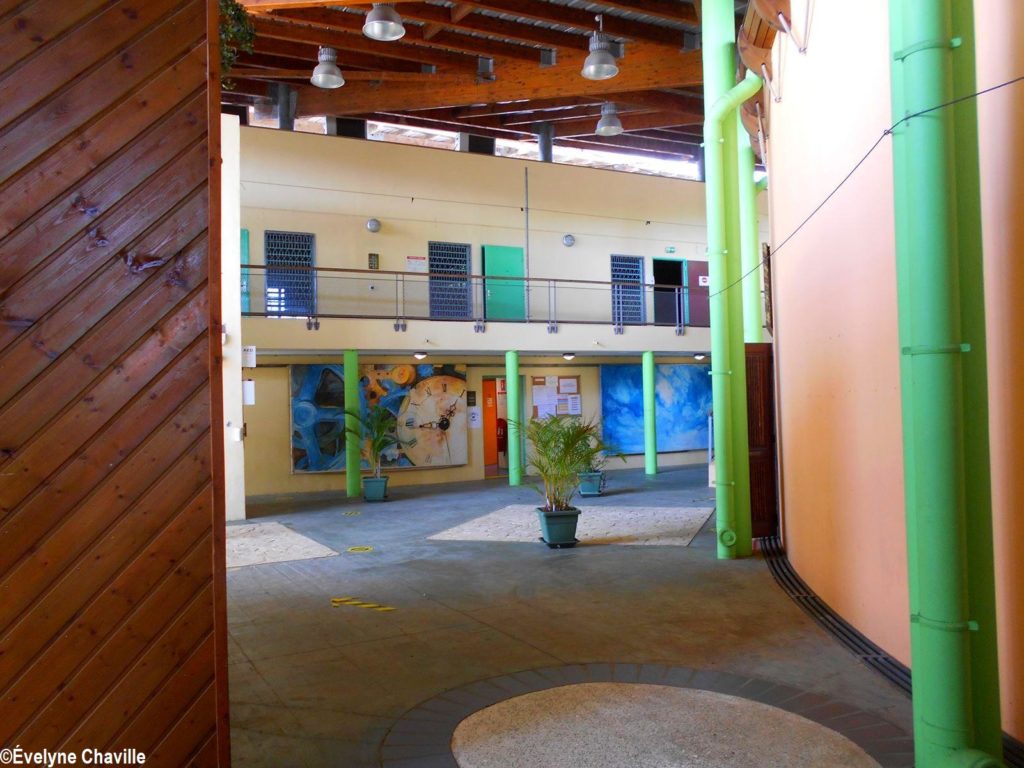
Kariculture.net : What will become of the technicians who work in this production division?
E. C. : Sonis is 2 pillars : education and training as well as production and creation. The production division is currently a little bit off, that being said, our technicians, the occasional workers in the entertainment arts who gravitate around this division continue to work during meetings. This means that we requalified the activities, we leave the stage but we still need a stage, sound or light technician at the meetings. We found the solution and the trick to requalify the tasks that allows them to gain a few hours. They are not really unemployed, but it must be recognized that the activity was significantly decreased, so it is very difficult for them to have the hours to reach the planned intermittence. It is a very critical, very difficult situation for the sector and the first to be affected are the artists, actors, dancers and technicians.
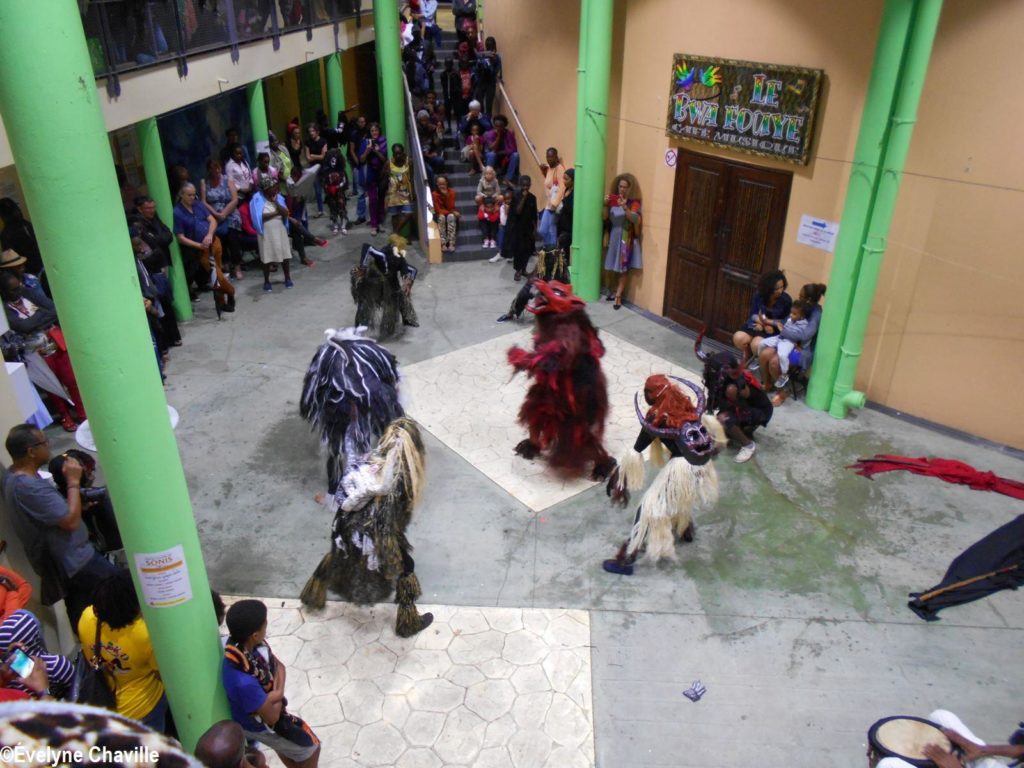
Kariculture.net: In normal times, how many shows does Sonis host per year?
E. C. : It depends on the season. We have a season that starts in September and ends in June, it can vary between 150 to 200 shows annually all together.
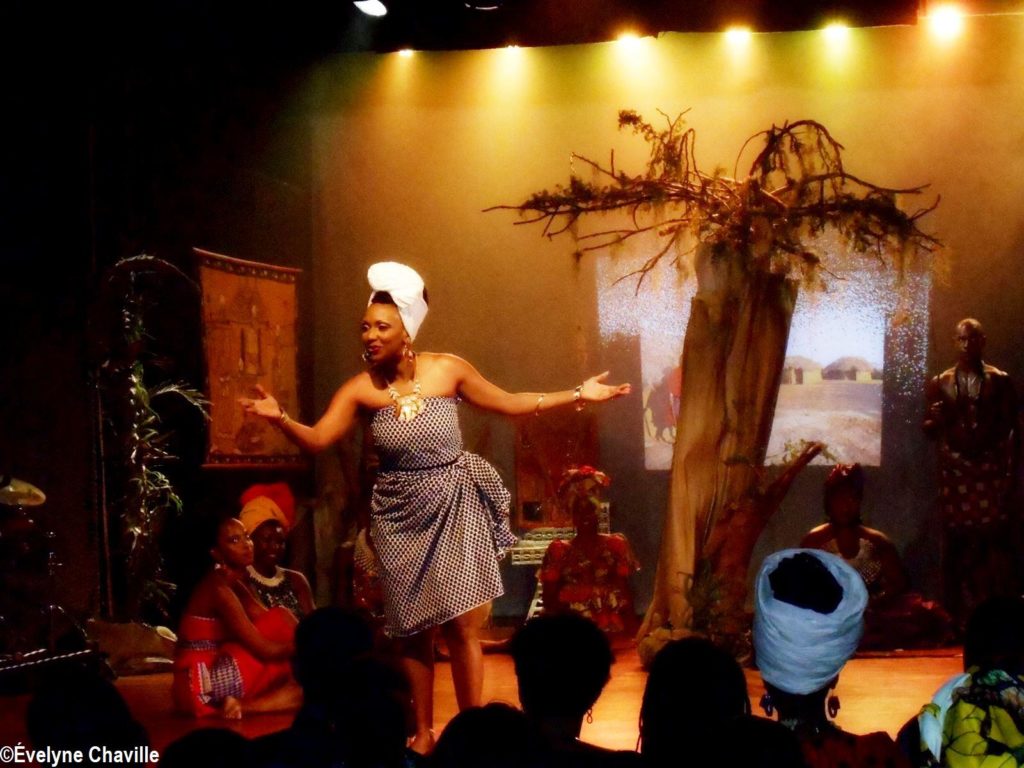
Kariculture.net: How many shows are produced by the Sonis Cultural Centre? How does it work?
E. C. : At Sonis, we have this mission to support production and creation. There are several formulas: the artist or the producer who comes and says : “we have a show already set up, we are on tour, we would like to rent your hall”, it is possible; there is the second formula, that is the artist who arrives and says “I would like to create my show”, we can support him on reflection, creation in light, the residency that allows him to start working on his show and to create the contours, the conditions ; there is the third formula where Sonis asks for a creation, that is we ask either dancers, actors or musicians to work on a creation that is a Sonis production. All three work and combine very well together in a season.
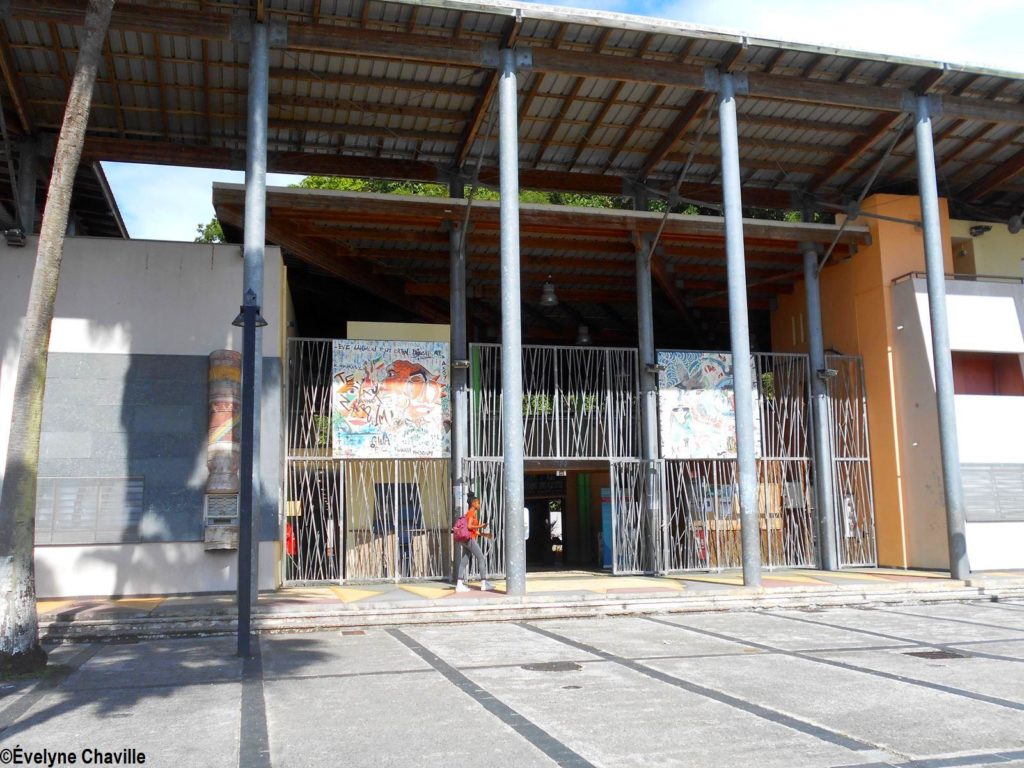
Kariculture.net : The Sonis Cultural Centre is supported by the Cap Excellence urban community, so there is a decrease in activity because of this Covid-19 epidemic, what impact does this situation have on your finances?
E. C. : We are an independent authority, on a Cap Excellence facility with a budget dedicated to the Sonis Cultural Centre, we are on a budget line, we have a mission of democratization. Sonis is not a private facility, but a public facility that must achieve a balance and not make a profit. Obviously, production activity is declining, but that doesn’t mean that Sonis’ activity really declined, there are fewer shows, but we can work on the preparation, the creation that will take place after Covid. There will be a decline in endowment, it’s logical : the more activity is sustained, the greater the financial demand, and the less activity is sustained, the lower the endowment will be. What is important to note is that despite this difficulty, the support of the Cap Excellence territorial community remains the same, since the will of the President is to allow this sector to continue.
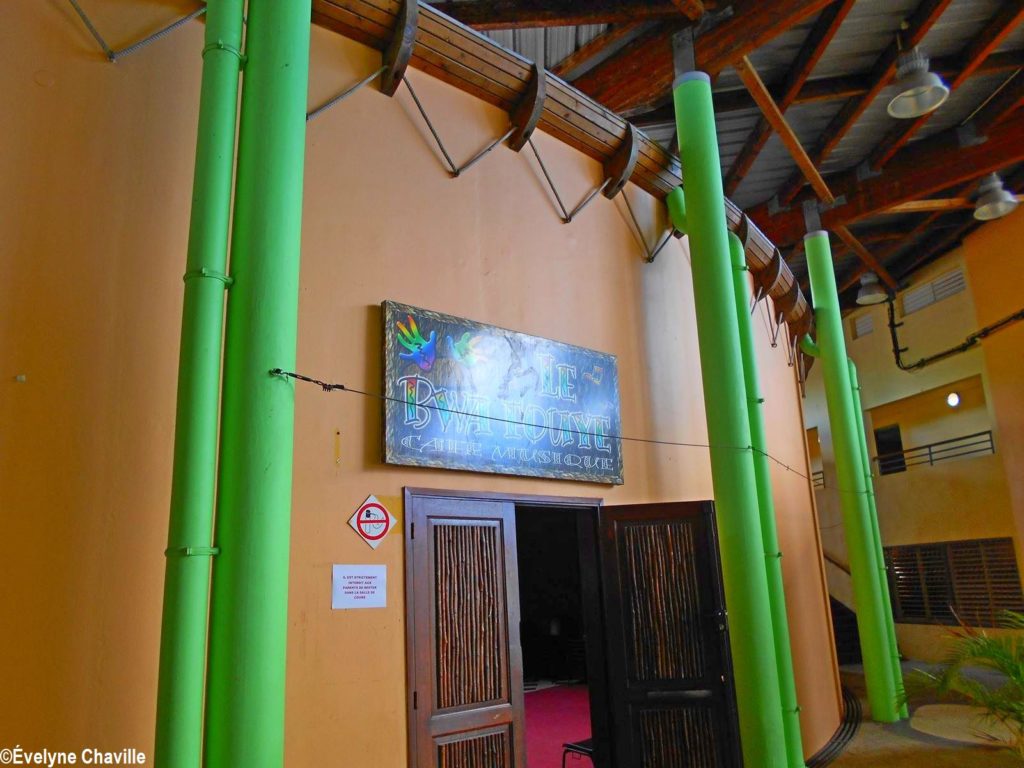
Kariculture.net : What is the amount of the subsidy you receive each year from the Cap Excellence urban community?
E. C. : An operating subsidy of € 1.4 million with an investment part. It’s an endowment that doesn’t change and that can go up to € 2 million, depending on events, since we manage at Cap Excellence the Festival Îlot Jazz which returns in December 2021 if Covid allows it, the Festival Cap Excellence en Theatre in May 2021, Cap Carnaval which is a significant event in performing arts and a landmark event in the cultural calendar of the urban community.
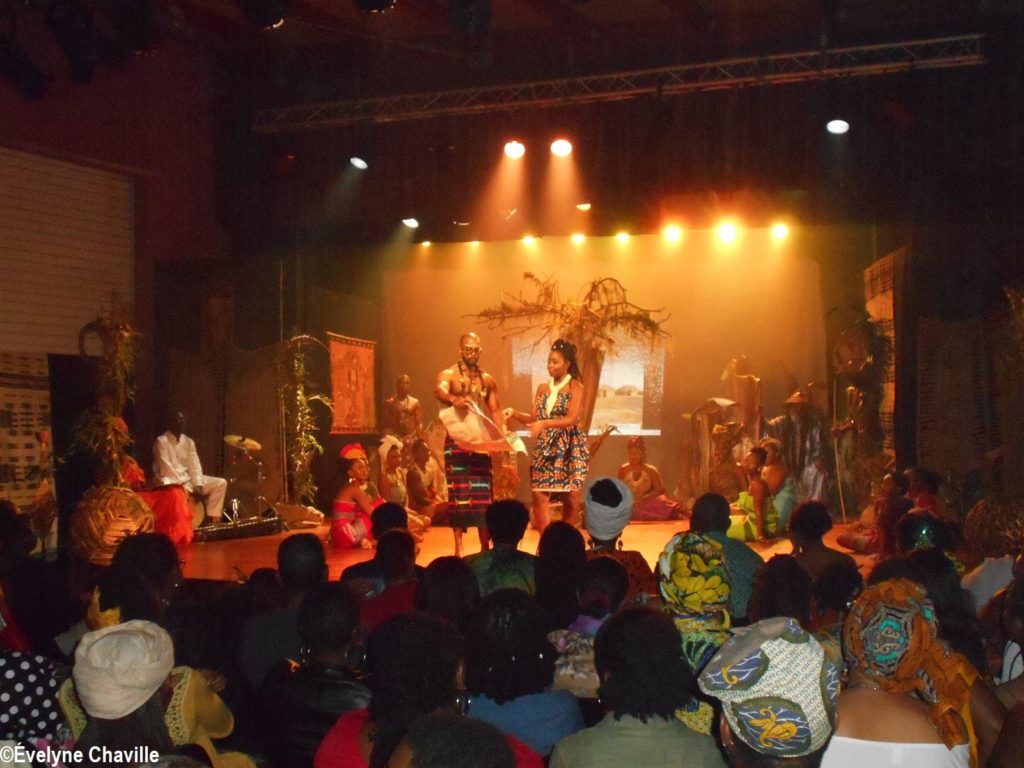
Kariculture.net : You are a convinced Caribbean, you have this beautiful cultural facility, have you already established links with Caribbeans so that they come to work, to perform at Sonis and receive Guadeloupeans in their islands?
E. C. : Absolutely. Sonis is a facility rooted in its closest geographical environment, which is the Caribbean. We have exchanges with all the Caribbean countries, such as Cuba (we received professors and artists who can offer master classes), Dominica, Saint Lucia… So, we stay in this Caribbean environment and we have a look at Africa, because here we host Le Mois de l’Afrique, and other events where Sonis is a central element: Festival Écritures des Amériques, Festival Première Rencontre autour du Piano… There is all this exchange with the Caribbean, Africa and Europe that allows us to receive all this external knowledge and, at the same time, we also give to the world what we have here in our territory. The exchange is ongoing, so I’m talking about cultural ferment (…).
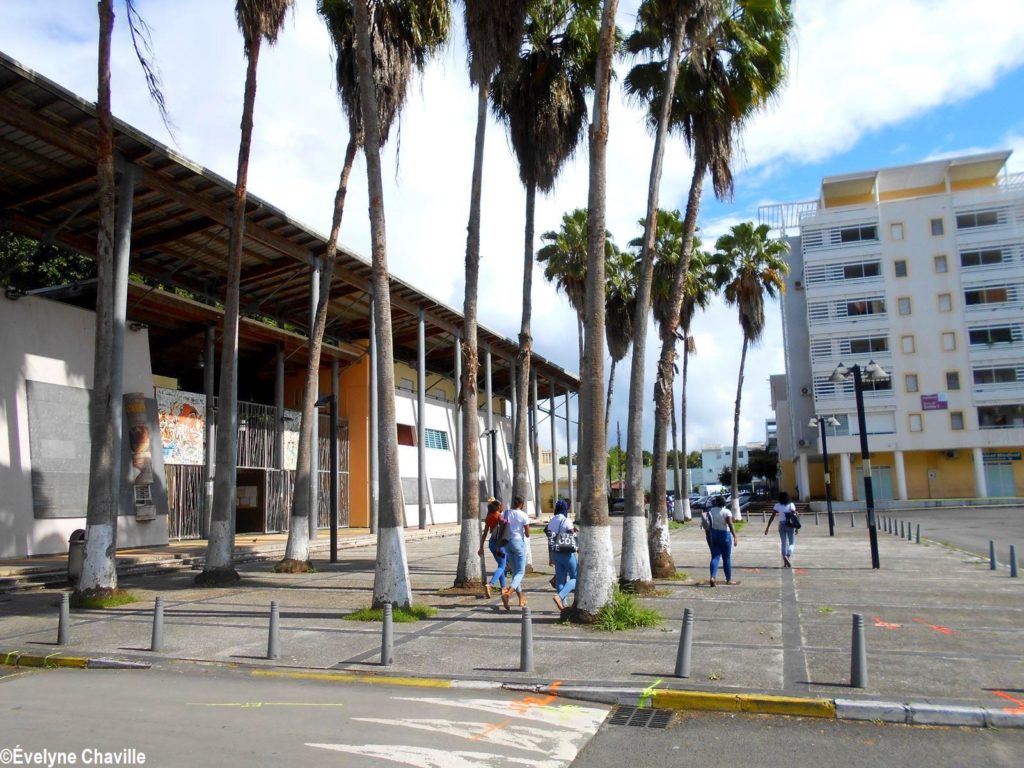
Kariculture.net : How do you see the future of culture at Sonis with this Covid-19 epidemic, if it should continue or after this crisis?
E. C. : It’s true that today, culture is in crisis, but I believe that human beings have the capacity to adapt and reinvent themselves. Moreover, we are seeing the arrival of digital technology in culture via the platforms offering all concerts. It’s true that performing arts, when it’s very much alive, it’s on stage and there is contact with the audience, we need this warmth, this exchange, we are in contact with the artist, it’s not the same thing. I also believe that we are beginning to know more about this disease, the evolution is taking place among the scientists. I am optimistic, I am not worried because I know that the world has already experienced other pandemics, we were able to control them, to surpass ourselves to find solutions. Of course, we will probably have to live with this virus, but I am sure that we will be reborn from our ashes like the phoenix and the show will start again more than ever. The show is part of the very essence of the individual, a world without music, without poetry, without culture, it’s unimaginable, it’s unthinkable.

